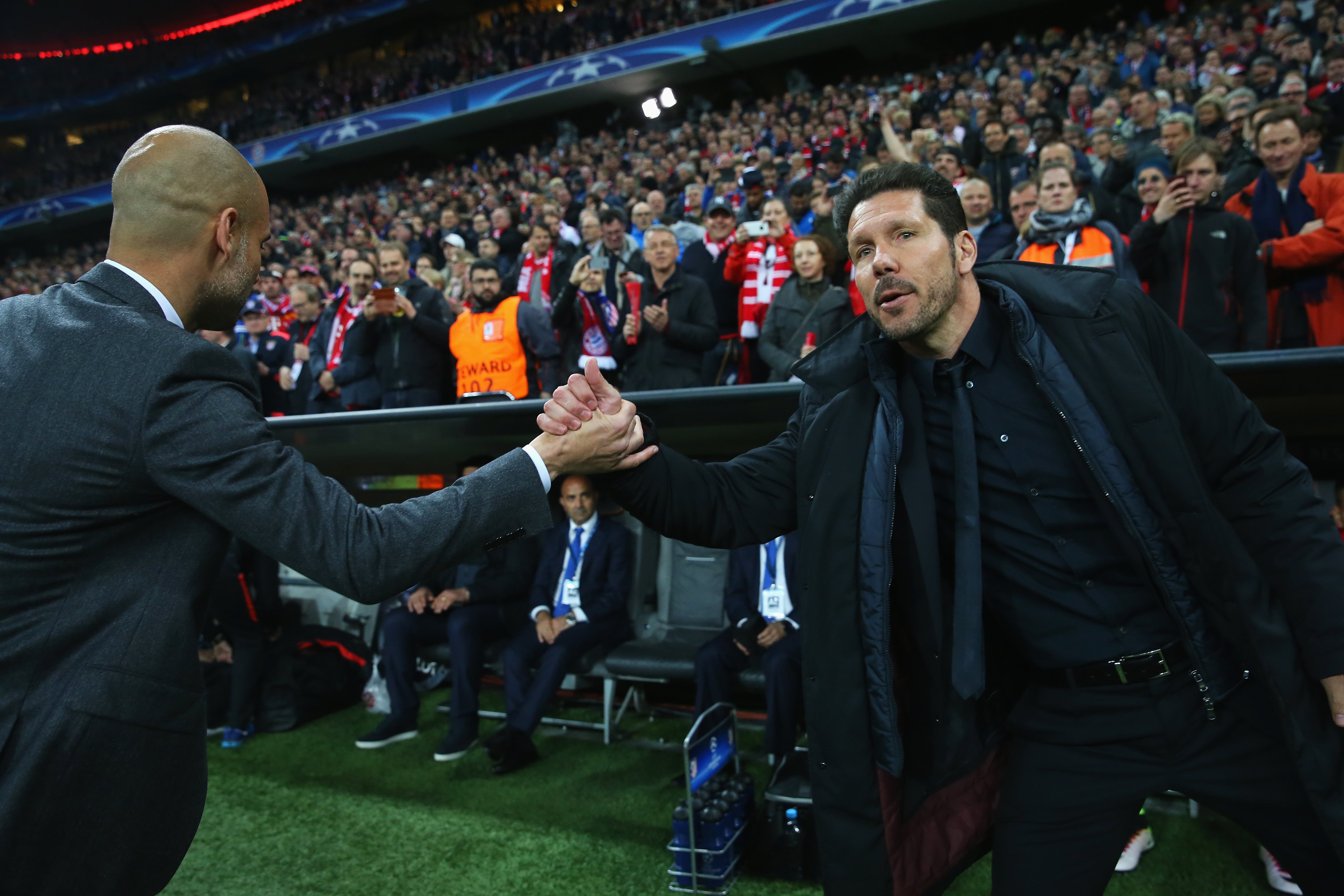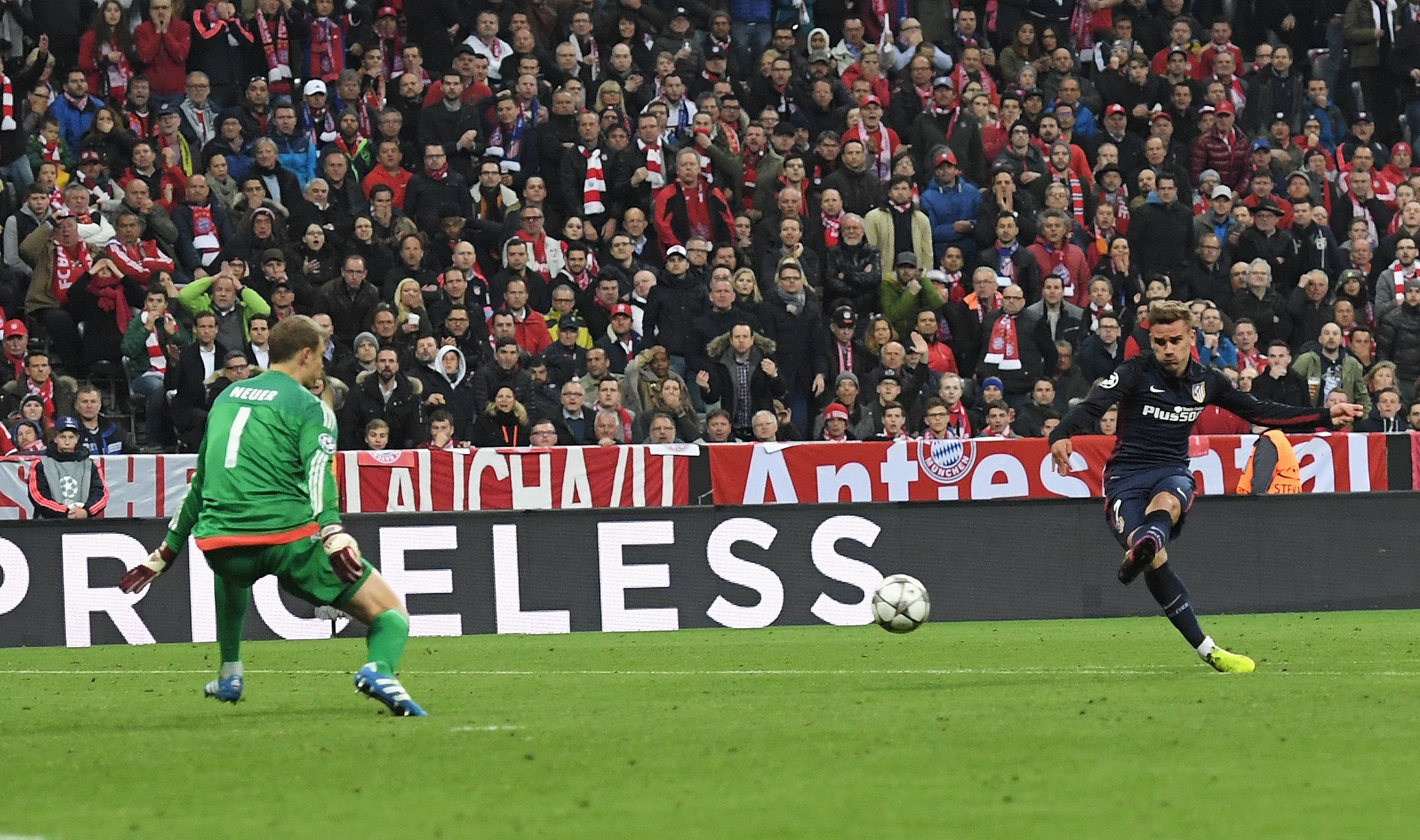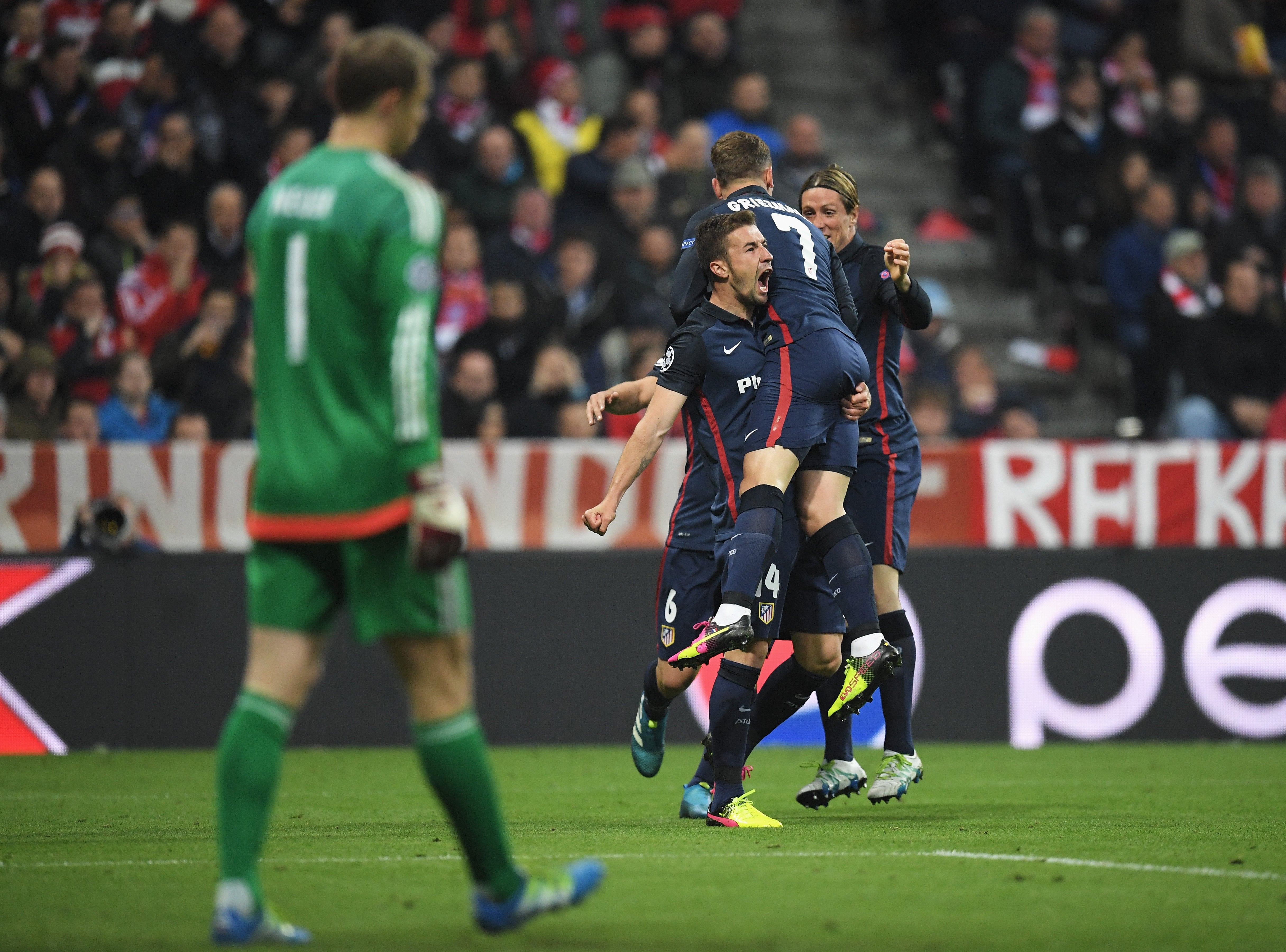
Shortly before Diego Simeone took the Atletico Madrid job in 2011, he went to Barcelona to see how Pep Guardiola’s revolutionary first great side worked.
The two got really deep on the fine details of the game, from how high you press, to how you attack tight spaces. While most football figures at that time would have been captivated by such an opportunity, Simeone was more restrained. “I don’t feel this,” he said of one approach. “I don’t like this,” of another. And on it went, right through many of Guardiola’s principles.
If Simeone was obviously impressed but not persuaded, Guardiola was convinced of something else. “This son of a bitch will be good,” the Catalan thought, an opinion relayed in a fine new documentary on Simeone, Living Match by Match.
The Argentine has gone on to become much more than good. He’s been one of the greatest coaches of the last decade, but also one who is all the more distinctive for how he’s lifted a second tier side to the top, and become almost a counter-culture figure.
While Guardiola has overwhelmingly defined the modern era, profoundly influencing the way the game is played, Simeone has defined the primary alternative. He has succeeded Jose Mourinho, and improved on him, as the high priest of playing without the ball.
It is all why Simeone may well be the manager most likely to force Guardiola into another “tactical episode” in the Champions League. That's something unexpected and unnecessary, that ends up being erratic.
Guardiola has long had probably the best side in Europe at Manchester City, only to constantly complicate that reality through the depth of his football vision.
Guardiola now has the better side in this week’s Champions League quarter-final, probably by a distance. Simeone is nevertheless adept at lifting Atletico to higher levels, with the very manner he does potentially provoking the City manager into another tactical episode that ultimately levels affairs further.
Their surprisingly short history against each other will only weigh on that further. Simeone’s Atletico have been responsible for one of Guardiola’s long semi-finals of the soul, with Bayern Munich’s 2015-16 elimination a modern Champions League epic. That was largely down to a classic clash of styles.
In that match, which had been their only Champions League meeting until now, Guardiola almost went into overdrive in working out how to find space. That was because Simeone is the manager who obsesses more than any other about closing space. It is where there has been some genuine creativity, of a type, in destructive play.
Players have been amazed by how Simeone comes up with sessions that “simulate every possible situation”. It means they have defensive drills for almost every possible attack. If a wing back makes one specific move, like say Joao Cancelo on Tuesday, Atletico’s side are conditioned on where to go. It was how they were able to negate Cristiano Ronaldo and neuter Manchester United in the last 16.
Such complex plans are then elevated by more simple instructions. “I learned so much at Atletico,” Toby Alderweireld said a few years ago. “One of those lessons that sticks: if there’s a high ball, never head it down, always up. It gives your teammates more time to get around the ball.”
From there, the intelligence of the defending is further emphasised by the intensity. Simeone, quite basically, derives a higher level of performance out of his players. That’s what makes them so difficult to get around. Guardiola’s attackers will be trying to get past the most determined possible defending.
“They fight with all their soul,” Simeone said after Atletico eliminated Liverpool in 2020. That’s because of how he motivates them, especially for big games.
It’s not just about appealing to “huevos” or “cojones” – balls – although there is of course a lot of that. Simeone will save specific motivation techniques for the grandest fixtures, most of which happen to be in the Champions League.
He will sometimes put inspiring clips of players’ best moments together, especially if there’s something particular he wants them to do, and they’ve previously done it well. He has used moments from the American football film Any Given Sunday, but only once, in 2013-14, because he knows such techniques have to stay fresh.
It is why, in the words of many around Atletico, he “loves the underdog role”. It fits with all of his ideals, and was why all of this came together for Atletoco’s incredible semi-final win over Bayern in 2016.
The first leg in Madrid was a classic Atletico 1-0 win, but also a classic stage-setter. Guardiola had made one surprising decision in dropping Thomas Muller, for which he was criticised. Much more decisive, however, was Simeone’s strategy of using four central midfielders in the middle of a purposely scruffy pitch. Bayern couldn’t get going, Atletico got that one break necessary through Saul Niguez’s sublime run.


Simeone’s side had the lead. Guardiola had to come up with something. Guillem Balague’s book, Another Way of Winning, reveals Guardiola again obsessed over it, wondering how to “unlock the most sophisticated defensive system in Europe” without compromising his own team. It helped that the Munich crowd were revved up for a vintage Champions League night. The players were meanwhile fired up for a last chance at winning the trophy under Guardiola. It had already been announced he would be leaving for Manchester City at the end of the season. He here implored the players to start with an inferno, moving the ball around with speed, but always to the outside so as not to get caught out by “the Simeone matrix”.
It initially worked superbly.
“It was a game, more than any in my career, where I felt the opposition were so superior,” Atletico’s Fernando Torres says in Living Match by Match.
Bayern inevitably scored after 31 minutes, with the goal a classic product of extreme pressure. Xabi Alonso’s free kick was deflected in off a despairing Jose Gimenez dive. The same defender then fouled Javi Martinez three minutes later, only for Jan Oblak to save Thomas Muller’s penalty. It was to prove a decisive moment, but Guardiola didn’t feel that at the time. He believed his team were playing too well. They were virtually perfect. He didn’t even need to tell them anything at half-time – bar one instruction. It was really a reiteration.
“Do not play inside, always outside,” Guardiola said. “If we lose the ball there, they can counter-attack us.”
And what happened? There was one solitary slip. On 54 minutes, Jerome Boateng played the ball inside. His pass was intercepted. Atletico, already a bit more aggressive after the introduction of Yannick Carrasco, sensed opportunity. They surged forward, Antoine Griezmann on the ball in a one-on-one.
Simeone’s thought process at that moment summed it up. “Please score because I don’t know whether we’re going to have another chance.”
Griezmann finished. The real epic was only beginning, though.
Robert Lewandowski headed in a response on 74 minutes, to ensure Atletico only lead on away goals. The next moment would win it. Bayern dominated.
It was all-out attack against all-out defence, the sport distilled, everything on the line – not least Guardiola’s legacy. His team, to be fair, looked like they were playing for it. Many were desperate to win the Champions League.
“I couldn’t believe what I was seeing,” Simeone said. “We couldn’t cross the halfway line.” Koke described it as the “worst game I’ve ever endured”, Diego Godin as “a severe way of suffering”.
Simeone had the best description of all. “Our area was a trench – but without a hint of shame about playing defensively.”
Atletico dug in. Bayern, after putting everything in, were out.


In the aftermath, Simeone was effusive in his praise of the opposition. “I am literally in love with this match… I am in love with that Bayern side. We could not answer their football style. I have to say I have played against the best ever team I have faced as a coach. It was a marvellous Bayern. But we soaked up the pressure and we won the game.”
Guardiola told his players and staff it genuinely was one of his best ever displays. This time it wasn’t sarcasm, or his notorious passive-aggressiveness. It was all too clear.
Guardiola had a touch more edge in that documentary, when he said he could never play Simeone’s way. “I cannot do that to my teams, never, but I admire that capacity for resistance, resistance, resistance, knowing in one moment the bee can sting.”
The manner in which Guardiola was stung makes this all the more relevant, and all the more influential for this quarter-final. The 2016 tie articulated all of his anxieties about the Champions League.
Guardiola’s team had been so much better, to the point of perfection, as they seemed to have everything in control. And yet they couldn’t grasp that victory, because they just couldn’t claim that moment. The game went out of their control in that crucial moment.
It is precisely the sort of elimination that usually leaves Guardiola obsessing over what else he could have done, what little tweak could have made all the difference.
And that brings us to Tuesday. It should be stressed this is a different Atletico. There’s no defender of Godin’s class. They are more patched together than the intensively drilled side of 2016. They just aren’t as good as Manchester City. That really can’t be overlooked. It remains the fundamental truth to this tie.
But Atletico are developing. The Champions League has helped them develop a momentum of late that has reminded of the recent past. Four of their last eight games have been won with clean sheets. Two of the last three have been 1-0s.
Simeone still has that capacity to rouse them. He also has the circumstances that suit him. These are precisely the sort of conditions that influence a “tactical episode” from Guardiola. Atletico are that frustrating.
The hope, at the least, is it creates another epic.







